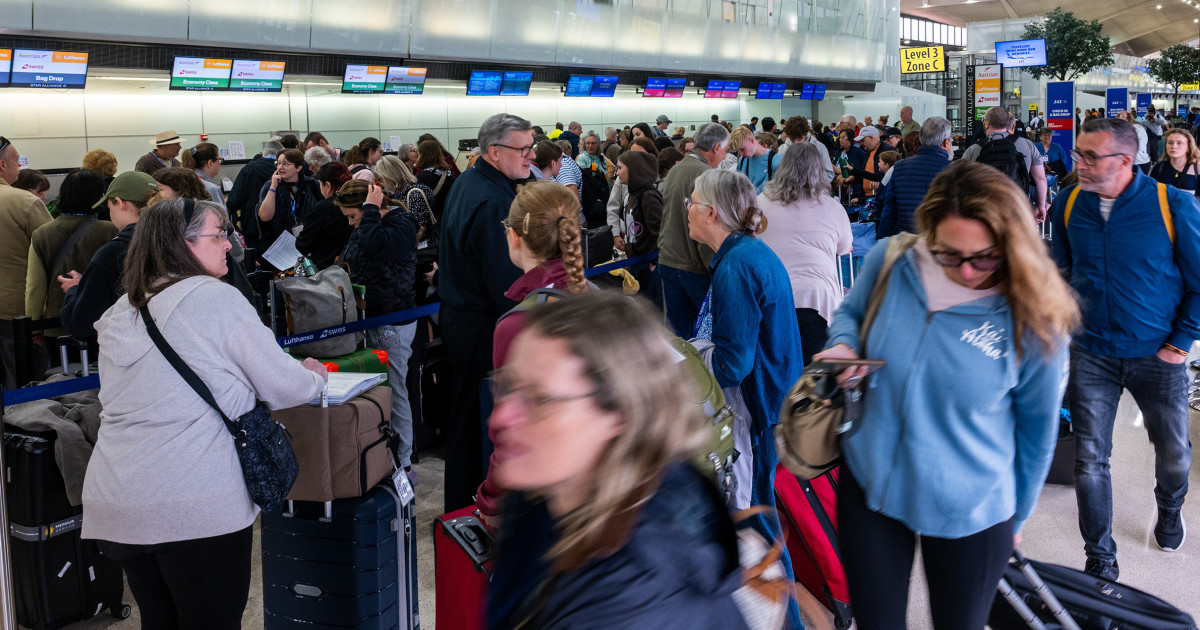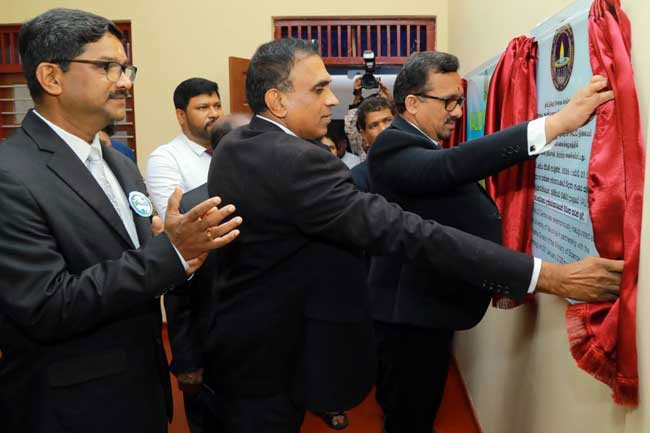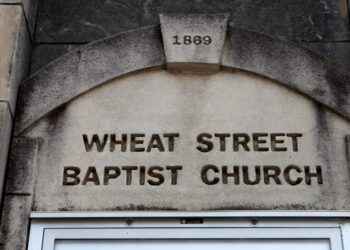Air traffic controllers temporarily lost communication with aircraft flying in and out of Newark Liberty International Airport in New Jersey last week, an incident that has continued to cause major delays at the travel hub.
Last Monday, a ground stop was issued at Newark airport because of a Federal Aviation Administration equipment malfunction. The administration has still not clarified what the malfunction was.
During the incident, air traffic controllers in Area C of the Philadelphia TRACON, a traffic control facility that guides flights in and out of Newark, lost communication with aircraft traveling to and from the airport, making them unable to see, hear or talk to them, according to the National Air Traffic Controllers Association (NATCA). The air traffic controllers are in charge of “separating and sequencing aircraft in and out of Newark Airport.”
It’s not clear how long the air traffic controllers lost communication with the aircraft.
The event led the air traffic controllers to take leave under the Federal Employees Compensation Act, which covers federal employees who are physically injured or experience traumatic events on the job, according to NATCA, a union that represents around 20,000 aviation professionals.
While the union did not elaborate on what caused the communication loss, it said it supports Transportation Secretary Sean Duffy’s “efforts to upgrade and modernize our nation’s air traffic control systems and infrastructure.”
Since the incident, delays and cancellations of flights traveling into and out of Newark airport have been constant. Airlines, including United, have had to cancel hundreds of flights, and dozens of others have been diverted to other airports.
Many issues contributed to the disruptions, including understaffing, construction and several instances of technical equipment failure. On Monday afternoon, over 300 flights traveling to and from Newark were delayed, and more than 150 were canceled, according to FlightAware.com.
Bill Walker was one of the passengers whose flight was delayed Monday.
“We were delayed almost three hours in Seattle because they couldn’t get air clearance to come into Newark,” Walker told NBC News.
Other travelers weren’t as lucky.
Ireland Hernandez, who was trying to get back home to Mexico, had an afternoon flight to Houston that got canceled.
“We came here just for the weekend and vacation, and we were planning to go back to Los Angeles,” Hernandez said. “But we have this connection flight from Newark to Dallas, and then we were driving to Mexico.”
She was traveling with her friend Sarah Arce. They said they struggled to get answers or support from airline staff members.
“They said, ‘We can’t give you a voucher,’” Arce said.
United CEO Scott Kirby said the Philadelphia TRACON “has been chronically understaffed for years,” adding that “Newark airport cannot handle the number of planes that are scheduled to operate there in the weeks and months ahead.”
A shortage in air traffic controllers is an ongoing, nationwide problem. Duffy said that there are 3,000 vacant positions nationwide and that he plans to roll out a strategy to offer incentives to the labor force.
New Jersey Gov. Phil Murphy said Monday in a letter to Duffy that there has been neglect in maintaining the air traffic control system, and he praised Duffy for working to hire more controllers.
“Decades of underinvestment in the maintenance of critical air traffic control infrastructure, delays in upgrading to modern 21st century air traffic control technology, and inadequate air traffic control staffing have resulted in a frail system nationwide,” said Murphy, a Democrat.
Murphy said thousands of passengers at Newark’s airport have been affected. He said he was asking Duffy for more investment in New Jersey.
The FAA said in a statement Monday that “our antiquated air traffic control system is affecting our workforce” and that it is working to improve the reliability of communications in the New York City area.
The FAA said that when there are staffing or equipment problems, it will slow arrivals in the interest of safety.
“We will keep the public updated as we work through these issues. The FAA will continue to be transparent with the public about the status of Newark and every airport,” it said, directing people to its website.














